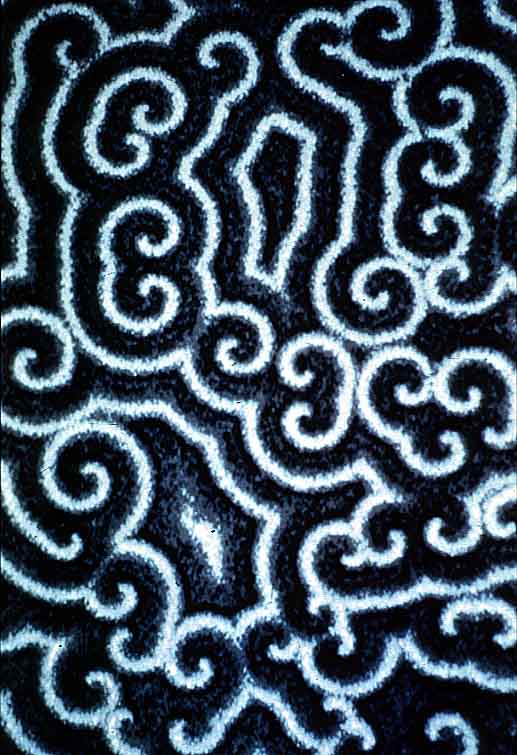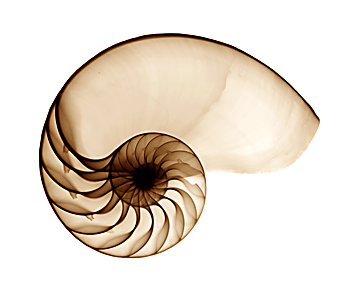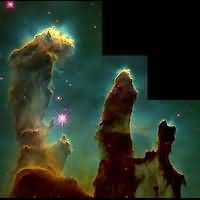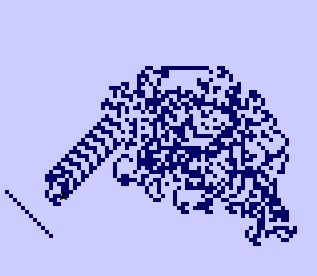Remote Ready Biology Learning Activities has 50 remote-ready activities, which work for either your classroom or remote teaching.
Serendip is an independent site partnering with faculty at multiple colleges and universities around the world. Happy exploring!

| 
| Exploring Emergence |
 |
 |

|
So, we have a world, consisting of an agent and an environment, and it does some pretty interesting things despite being remarkably simple. But there's actually more involved ... there is, outside the world, an observer (you) who is also sometimes a participant, an actor in the world that is being observed.
That's important. Even if the observer doesn't actually get involved in the world. Without an observer, there isn't anyone (or any thing?) to notice there are interesting things happening in the world. In fact, the very idea of "interesting" reflects the existence of an observer; it is the observer who has the criteria that make something interesting or not interesting. Without an observer, the world of Langton's ant isn't interesting or not interesting; it just is. Period.
Maybe the same holds for some of the other ideas we've been talking about? If there weren't an observer would the ant be initially wandering "aimlessly"? Would it even be an "ant" that is "building a road"?
And what about the question we started with? Does the ant actually acquire a "purpose" or have a "purpose"? It certainly looks to the observer (at least some observers) as if it does. But ... nothing changes inside the ant when it starts building a road. And when we look inside the ant, there are only the four simple instructions. There is nothing there that looks like instructions for building a road, nothing there that one could say represents "purpose". Maybe we need to think more about what we mean by "purpose"? Is it always so simple as what's going on in the world of Langton's ant? Is it always only in the mind of the observer? Or is there something beyond what Langton's ant does and is that we intend when we use the world "purpose"?
See how important even a passive observer is? It is the observer who creates a story that gives meaning to what is taking place in the world of Langton's ant. And it is the meaning that creates the new questions that we use to further explore the world, including by becoming a participant in it and hence altering it.
No observer, no story, no meaning, no new questions. A different observer ... a different story?, a different meaning? different new questions? different explorations of/alterations in the world? Try it out; see if you can tell a different story about what we've observed so far. What new questions would it create? What would you want to do to the world to answer them? How would it change the world?
To get you started, how about a story not about purposefulness but about playfulness? In this version of the world of Langton's ant, we've put in a pattern of dark squares that causes the ant to build a road from the outset. Click Set/Reset to see it, and then click start. So now the ant doesn't start out wandering aimlessly but instead starts out acting purposefully. an you continue this particular story by setting it up so that it shows a transition from purposefulness to playfulness? You can change the colors of environmental squares as before. Would the ant shift from purposeful to playful by itself? What new questions about playfulness might follow and what new changes might you as observer/participant make in the world to test them?
Notice that at this point you are not any longer a passive observer but can exert several kinds of influence on the world of Langton's ant. And that the effect is, just like the relation between agent and environment, reciprocal. You as the observer can alter not only the meaning of the world but the world itself (by adding and subtracting dark squares). And the world, in turn, has altered you by giving you (we hope) new understandings and new things to think about.
The world of Langton's ant is, of course, not a "natural" world but an "artificial" one ... one created by a human being. Does that make a difference in how you think about it? what implications you draw from it? If nothing else, it means there is actually one more element that probably should be taken into account. Let's spend a little time thinking about Chris Langton and his role in our observations, and the ideas that we get from them.
| "The World of Langton's Ant" was produced by Paul Grobstein with the Summer 2005 Serendip/SciSoc group. Applets were created with NetLogo by Rebekah Baglini, building on earlier work. Our thanks to the Emergent Systems Working Group for fertile conversations from which this emerged and to which we hope it further contributes. |
Watching Looking Inside Agents/Environments | Observers | Architects | Beyond Determinism? Summary and ... Further reflections on Emergence and Science Education |